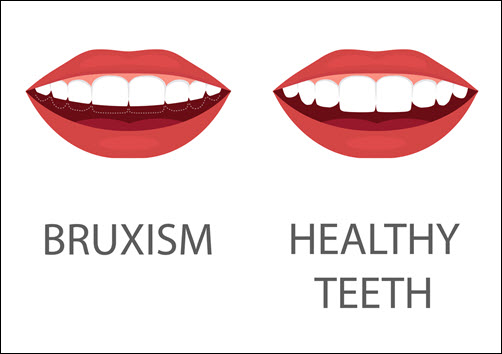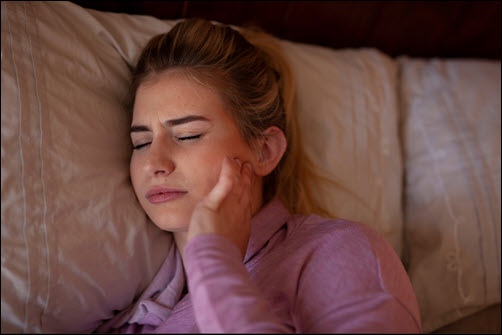Grinding one’s teeth is a habit often resulting from emotional upheaval. But other activities can cause it. It most often occurs during sleep, so it can be a difficult habit to break. Fortunately, one can take actions to keep it to a minimum. Tooth griding is largely preventable.

Causes of Tooth Grinding
Grinding one’s teeth, also known as bruxism, is most common in children, teens, and young adults. However, it is an issue for people of any age. People with bruxism may suffer from pain in their jaw muscles, teeth, and the temporomandibular joint (TMJ).
Types of Bruxism
Awake Bruxism – If you clench and grind your teeth during waking hours, it is often caused by emotional unrest (stress, anger, etc.). But sometimes, one concentrates so intently they will grind their teeth. Typically, awake bruxism does not need any special treatment. Instead, one must be aware of their actions and stop. If it does persist during daytime hours, talking to a counselor or therapist to learn stress management tips can help.
Sleep Bruxism – Because this happens while sleeping, you may not even notice teeth grinding happens. Making sleep bruxism more concerning is teeth grinding, which applies up to 250 pounds of force on one’s teeth. This much pressure can wear down the teeth, cause headaches, jaw and neck pain, and bring on a variety of long-term dental problems.
Contributing Causes to Tooth Grinding
- Acid reflux
- Allergies
- Anxiety, anger, or other emotional scenarios
- Caffeine
- Medications • Misaligned teeth
- Mouth irritation
- Sleep Disorders (apnea, snoring, sleep paralysis, etc.)
- Tobacco and Alcohol
Medical Approach for Correcting Bruxism
Mouthguards, also called night guards or dental splints, can be worn when sleeping to keep the teeth from grinding. You may choose to start with an OTC mouthguard. However, for best results, talk to your dentist about a custom mouthguard designed to work with your mouth shape and teeth alignment.
Should your teeth grind be a result of snoring, a special guard known as a Mandibular Advancement Device can be made to reduce chronic snoring and sleep apnea. The MAD prevents grinding by repositioning the jaw and opening the airway.
Stress, anxiety, and anger are often part of life. And sometimes, grinding one’s teeth is a reaction to these emotions. However, these are not the only reasons one might grind their teeth. And in doing so, painful dental issues occur. But you don’t have to suffer from bruxism. Talk to the to learn how to overcome tooth grinding.

